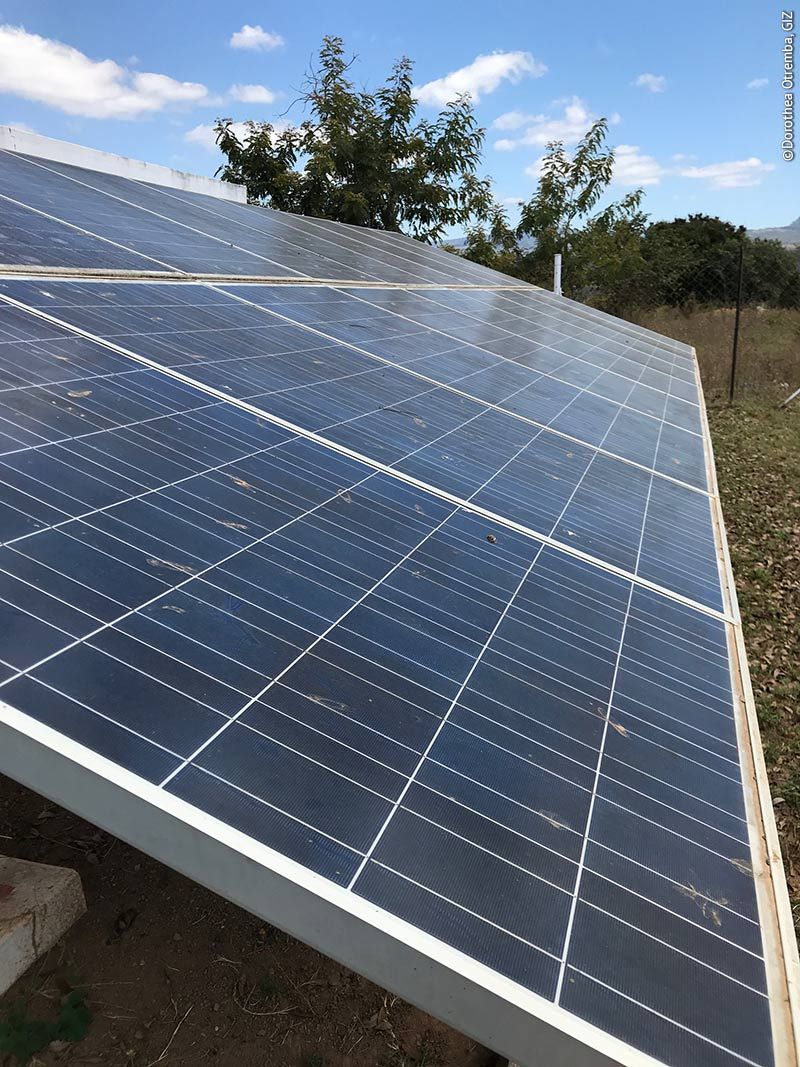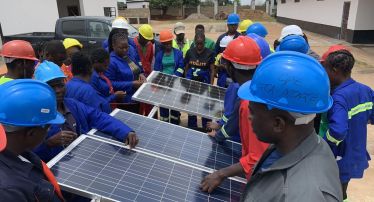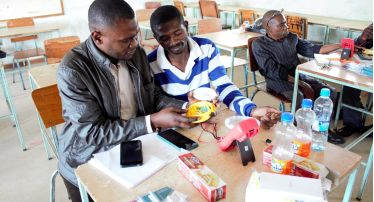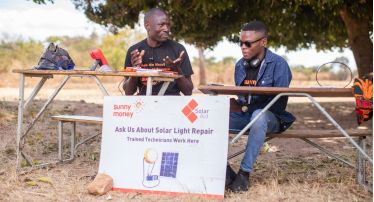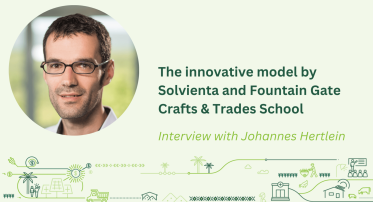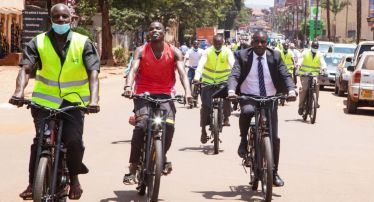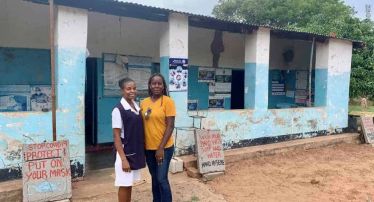Green People’s Energy for Africa – Zambia
Green People’s Energy aims to improve the conditions for decentralised energy supply in rural areas in selected African countries, with the involvement of both civil society and the private sector. To this end, we are working in nine countries across Sub-Sahara Africa, including Zambia. In addition to our country-based measures, we support cross-national charitable projects and strengthen partnerships between players in Europe and Africa.
In Zambia, Green People’s Energy will, among other things, promote vocational education and training for the use of solar technology in rural areas in order to improve the decentralised supply of energy. Local businesses that provide solar energy solutions will participate in training teachers from vocational and higher education institutions as well as a cadre of skilled workers. Training institutions are also being supported with training equipment and the development of practice-oriented curricula. Awareness raising for the productive use of solar energy, for solar cooling, solar milling, solar irrigation, among other uses, will complement the activities.
Did you know that…?
… the general energy situation is characterised by a low national electrification rate (39.8% in 2018)?
… that only 11% of people living in Zambia’s rural areas have access to electricity (in 2018)?
… that due to climate change, electricity generation from hydroelectric dams has become unreliable while energy demand is growing across the country?
… that solar energy presents a large resource for solar PV-based electricity generation because the country has an average 2,000-3,000 hours of sunshine per year?
… that a lack of access to electricity prevents increased production and processing of agricultural products, and thus hinders job creation and economic development?
How we work
The Green People’s Energy initiative builds on the successful approaches and implementation structures of existing projects. In Zambia, Green People’s Energy cooperates with other GIZ projects including programmes on agriculture and water resource management. The main objective in Zambia is to improve the education and training for decentralised renewable energy systems, and to cooperate with civil society and the private sector.
The project strengthens technical and vocational education, and training in off-grid solar technology, for solar milling, solar pumping and irrigation systems that are used in the agricultural sector. To do this, the project works jointly with existing agricultural and water resource management programmes. Training institutes will be supported in expanding and professionalising their training programmes. Curricula will be developed jointly with the national TVET Authority, and the private sector, in order to complement job requirements in the local off-grid solar sector.
Green People’s Energy will help introduce practice-oriented curricula with a focus on renewable energies at four training centres. Here, 12 teachers and 200 renewable energy specialists will be trained. The project activities will be designed to offer equal opportunities for both women and men. In order to put the acquired knowledge into practice, training institutions will be financially supported in the acquisition of solar power systems.
